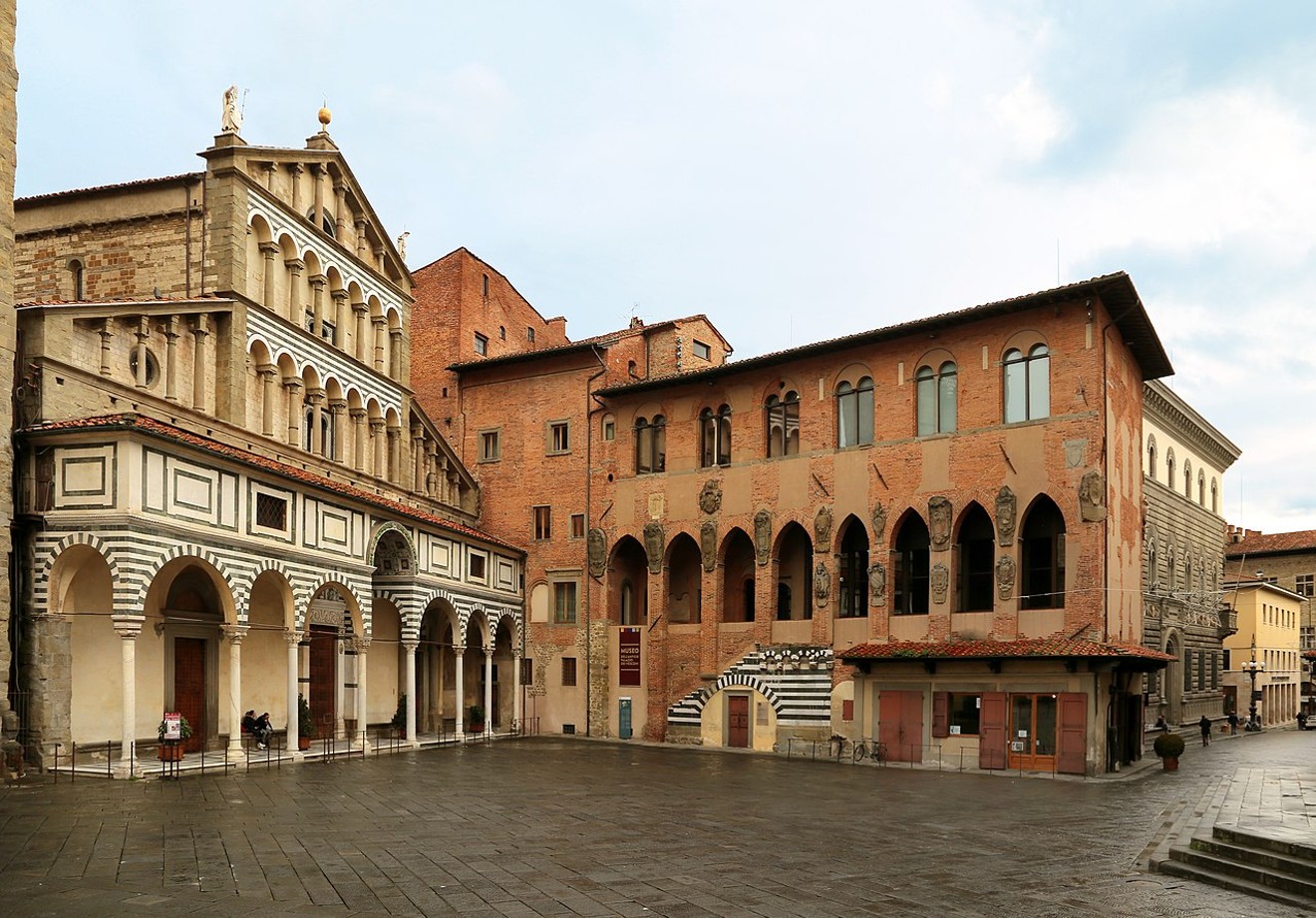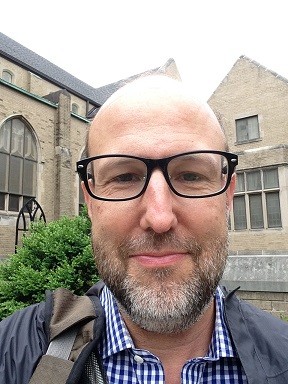In the spring of 1348, when the rodent-borne Black Plague was decimating a third to half the population of Europe, the small Tuscan city of Pistoia in what is now central Italy published an ordinance that began, “In the name of Christ Amen.”
The Pistoian “plague ordinance” made it illegal for citizens of nearby Pisa or Lucca to visit Pistoia: “No one can or ought to come from either of them or their districts to the said city of Pistoia or its district or county.”“They can bring out very high degrees of solidarity, including some that cross the lines of class and race that so mark our society.” — Benjamin Johnson
tweet this
But the same ordinance said it was OK for citizens of Pistoia to visit the other two: “It is licit, however, for citizens now living in Pistoia to go to Pisa and Lucca.”
On March 23, 2020, Pitkin County, Colorado, home to the tony international ski mecca at Aspen, published an ordinance that said, “Visitors to Pitkin County are directed to return home immediately upon the issuance of this Order by the fastest and safest available means, and persons considering visiting Pitkin County should remain home.”
But then there was the problem of who was and was not a visitor: “Although non-resident homeowners are expressly exempt from this paragraph,” the ordinance stated, “non-resident homeowners are strongly encouraged to leave or not travel to Pitkin County.”
Scholars say the impulse to fear and expel the disease-bearing foreigner is as ancient and predictable as civilization itself. In fact, some argue that this dark impulse even helped give birth to modern civilization.
When President Donald Trump attempts to rename the COVID-19 virus the “Chinese virus,” two things are true. One, he’s probably right. The best hunch now is that it came from China. But, secondly, historians who have studied ancient pandemics say that tying the disease to an ethnic or national identity taps into dark themes running deep in our nature and the history of human societies.
Trump’s “Chinese virus” trope is far from novel or surprising, they say. Instead, it is a thing that almost had to happen now because it has almost always happened in the past. There are reasons that hatred of the disease becomes hatred of those blamed for bringing it, and not all of them are totally illogical.
Benjamin Johnson, an environmental historian formerly at SMU, now at Loyola-Chicago, argues that xenophobia and racism arise predictably if not automatically from plagues and pandemics because victims feel a desperate need to explain the plague and their own plight.
“I want to be careful how I say this if I am being quoted,” Johnson says, “so as not to seem to endorse it. But I think (racism and xenophobia) are a powerful way of explaining something that is real and does need explanation.”
He points out that the Black Death in Europe inspired waves of pogroms. Jews who had long been accepted as valued members of communities were burned out of their homes, banished if not burned alive.
“There is a reason Jews get targeted in the Middle Ages in the Black Death,” he says. “Although people then didn’t have the technological or intellectual apparatus of modern science, they weren’t any dumber than we are.
“They knew this disease came from the Mongols in the East. And they knew it was brought to their place by people who were traveling, by communities that had moved around, like gypsies or Jewish traders. To that extent, it made a certain amount of sense to realize that mobility and connection to trade were one of the reasons why this thing could happen.”
Bianca Lopez, a medieval and Renaissance scholar at SMU, argues that a loathing of the disease-bearing foreigner is a profound perennial force that helped create humankind’s very first inklings of national identity and devotion to place. When President Trump invokes the foreignness of the coronavirus that causes COVID-19, Lopez says, he taps into those deep-running ancient themes.
“Those words do political work,” Lopez says.
“Trump’s language is as American as apple pie. It’s a norm. This is no aberration.” — Rick Halperin
tweet this
But the dark themes of racism and xenophobia express only one way human beings can go when reacting to shared crisis. Historians point out that pandemics, like all major shared emergencies, also have brought out great courage, selflessness and sense of communal responsibility.
Edward F. Countryman, an authority at SMU on the American Revolution and the history of slavery, cites the story of Absalom Jones, a former slave who became the first black minister in the Episcopal Church, and his friend, Richard Allen, who founded the African Methodist Episcopal Church. Both men played heroic roles in the yellow fever epidemic of 1793 in Philadelphia, then the nation’s capital.
Countryman describes the epidemic as “kind of like what we are seeing now. It sent the government scurrying. Everybody scatters. Congress breaks up. I think (President George) Washington was outside the town. There was fear everywhere, terrible fear.”
A mistaken belief at the time was that black people were immune to yellow fever. “Acting on that belief,” Countryman says, “Absalom Jones and Richard Allen, who was his buddy, stayed in the city to help. They bravely went to places to deal with dead bodies and all sorts of things. It was incredible.”
Of course, every era has its truthers. Critics of Jones and Allen emerged to accuse them of profiteering from the dead. The accusations were disproved and denounced, and the mayor of Philadelphia publicly commended the pair for their courage and generosity.
Johnson at Loyola-Chicago also urges that the xenophobic, racist reaction to pandemic is by no means the only way people historically have responded to emergencies: “It is also the case that broadly speaking across time and space but including huge tranches of U.S. history, real disasters like this often bring out the best in people.
“They can bring out very high degrees of solidarity, including some that cross the lines of class and race that so mark our society,” Johnson says.
He draws in part from personal experience: “As a Gulf Coast boy who grew up in Houston through a number of hurricanes, this was my experience as a child. People are incredibly generous with one another.”
The difference, of course, is that hurricanes can’t be blamed on black people, gay people or the Chinese. Not easily, except for certain right-wing evangelicals. But disease is human and personal. To Rick Halperin, a scholar of human rights at SMU, that makes ethnic scapegoating inevitable.
“Trump’s language is as American as apple pie,” Halperin says. “It’s a norm. This is no aberration. The use of discriminatory laws and language is what this country remains all about. It’s pathetic but it’s true.
“There is always some group, whether nationally or globally, to demonize in the name of love of country. This is Trump’s turn. He doesn’t miss a beat.”
Scholars are scholars. They tend not to want to say things they can’t defend in a peer review. So while many of them may be willing to draw parallels between Trump’s “Chinese virus” trope and past reactions to pandemics, most are cautious about imputing personal strategy or intent — things they can’t know.
And yet, the unmistakable linkage of “Chinese virus” with horrors of the past, with pogrom, persecution and banishment, can bring out unscholarly words from people who know that past. Countryman says, “Trump is a snake whisperer. And we’re not talking about garden-variety snakes that won’t do you any harm.”
One of the subjects Johnson at Loyola-Chicago has taught in the past is the history of disease. He says he hears often these days from former students trying to put together what he taught them with what’s going on now. “Teaching that subject will never be the same again,” he says.
The most important lesson for us all, Johnson says, is that we are not different. We are tied at the hip to our history. We respond in the ways we do now to pandemic, right and wrong, good and evil, because it’s in us. Those are the ways we have always responded.
He says bigotry does not appear from nowhere when disease threatens. The bigotry was always there. It emerges from dormancy to join and reinforce the physical disease, shredding the shared community while the disease shreds individual lives.
“In some of the documents I use, you see these terrible pogroms and expulsions in Europe, towns just rounding up their Jewish populations and terrorizing them, sending them packing.
“Xenophobia and nativism and social fault lines, they all sort of go together with the experience of pandemic disease. It would be foolish to think just because we live in the era of science and technology and the internet and blah blah blah, that the larger pattern has actually changed. Really, it hasn’t.”
What Johnson says raises another question that probably can’t be put to scholars fairly, because it calls for a crystal ball, not scholarship: If we are as hard-wired as the scholars claim to a history of panic and pogroms, and since we now live in that era of technology and communication that Johnson invokes, couldn’t our new technical capacities enhance and exaggerate whichever direction we wind up taking?
If we go in the direction of light, of selflessness and courage, then we ought to be able to get there faster with all the tools we have at hand. And if we go in the direction of darkness, the same should be true.
















